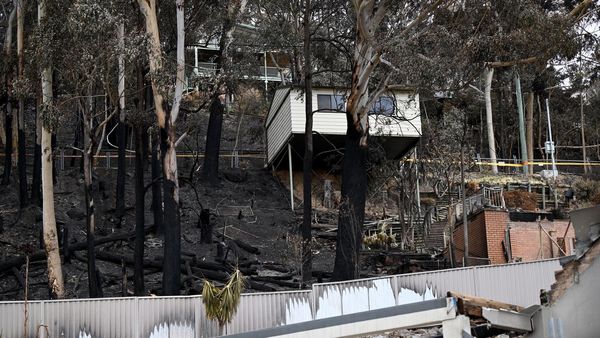
A group of about thirty people packed inside an Indonesian restaurant in downtown Keelung on an unseasonably warm and sun-soaked Sunday morning before the Lunar New Year holiday. The group, consisting of Indonesian migrant workers, Taiwanese activists, local government officials, and cultural and education workers, gathered to inaugurate the Keelung Migrant Fishermen’s Union (KMFU).
Headquartered at Secretary General Mei-hua Lee’s restaurant, the KMFU is the second migrant fishermen’s union to gain legal status in Taiwan after the Yilan Migrant Fishermen’s Union (YMFU) in 2013.

Taiwan’s fishing industry
The formation of the KMFU is the most recent milestone in an ongoing struggle with exploitative working conditions in Taiwan’s US$2 billion fishing industry. The issue has been well documented by mainstream media, but the government has yet to take aggressive action to protect migrant fishermen.
But the Taiwanese government hastily responded when the European Union slapped a yellow card for illegal, unreported, and unregulated (IUU) fishing in 2015. The threat of sanctions in one of Taiwan’s major export markets pushed the government to adopt a set of legal reforms to regulate fishing practices in its distant water fisheries in 2017. These measures were largely perfunctory, however, and meant to placate international observers rather than end abusive industrial practices.
While the Taiwanese government worked furiously to rescind the EU’s yellow card, cases of deadly physical violence and abuse o Southeast Asian migrant fishermen came to public attention. Supriyanto, an Indonesian migrant fisherman, died under suspicious circumstances after spending just four months at sea in 2015. YMFU members received word that Supriyanto had been repeatedly and viciously beaten prior to his death.

In 2016, the YMFU and the Environmental Justice Foundation (EJF) released shocking photographs and videos obtained through interviews with fellow crew members in Indonesia showing Supriyanto’s rapid deterioration in health and agonizing death. The evidence called into question the initial ruling of the death as an accident. After successfully forcing the local prosecutor’s office to reopen an investigation, the EJF and YMFU formed the Human Rights for Migrant Fishers coalition with a number of other labor and social movement organizations, demanding that the Taiwanese government address not only IUU fishing, but also labor and human rights violations.
The coalition
The Human Rights for Migrant Fishers coalition consists of groups focused on advocacy and service such as the YMFU, Serve the People Association, and the Taiwan International Workers’ Association, as well as groups focused on research and lobbying such as the EJF, Taiwan Association for Human Rights, and Greenpeace Taiwan. Coalition members and faith-based organizations such as the Rerum Novarum Center, Stella Maris, and the Seamen’s/Fishermen’s Service Center have been instrumental in exposing exploitation and abuse aboard Taiwanese fishing vessels.
In Taiwan, employers and labor brokers are notorious for routinely deporting migrant workers who complain of degrading and dangerous living and working conditions. In 2018, local organizations played a key role in gathering evidence of inhumane labor conditions and health and safety violations aboard the Taiwanese-flagged Fu Sheng No. 11, the first ship detained under the International Labor Organization’s Work in Fishing Convention No. 188.
Working with the American Institute in Taiwan, coalition members and human rights groups successfully lobbied the U.S. Department of Labor to include Taiwanese-caught fish on its List of Goods Produced by Child Labor or Forced Labor in 2020. The U.S. Customs and Border Patrol subsequently banned shipments from the Da Wang and Yu Long No. 2 for credible reports of forced labor based in part upon testimonies provided by the coalition.
Organizing the KMFU
The KMFU was officially recognized at the beginning of this calendar year after two tumultuous years.
The KMFU, composed of over one hundred members working at Zheng-bin, Badouzih, and Changtanli Harbors, joins the YMFU as the second labor union within the constellation of the Human Rights for Migrant Fishers coalition. The idea of establishing a new migrant labor union in Keelung originated in conversations between officials of the YMFU and Indonesian migrant workers based in northern Taiwan.
In Taiwan, unionizing migrant workers involves a series of challenges. For example, union organizers often encounter difficulties recruiting members whom the organization seeks to protect.

For one thing, KMFU’s membership is restricted to migrant fishermen employed in Keelung. Allison Lee, YMFU’s Secretary General (no relation to KMFU Secretary General Mei-hua Lee), said the exclusion of migrant workers from the union due to their place of residence created tensions in the group and hampered the organizing drive.
Two of the most active leaders of the Indonesian fishermen community in Taiwan were barred from joining the union because of these restrictions. “It was a real problem. We tried to make the union for seafarers, but the local government said this wasn’t a valid occupation. Then we found out that people from Shen’ao [Harbor] couldn't join. It caused a lot of trouble. Many people left and we had to keep starting all over,” said Mei-hua Lee.
Indonesia, Vietnam, and the Philippines are the main sources of migrant fishermen for Taiwan. Although fishermen gained the right to unionize in 2011, they are denied a wide range of basic protections, as other migrant workers are. Employed in one of the most dangerous industries in the world, these migrant fishermen tend to turn to hometown associations and faith-based organizations for help.
Frustrating as it is, Lee spoke of how forming a union with the Indonesian fishermen community proved to be rewarding. She said, “A lot of people didn’t believe that we could do it. I almost gave up too, but there were others who said that we really need a union. So we kept talking with people and collecting signatures and documents.”
At the heart of the KMFU’s success is a belief in the capacity of the union as a vehicle for challenging routine labor rights violations. President Tori Hartono pointed to the union’s institutional power to pressure employers and labor brokers to obey the law as a key element of supporting migrant fishermen.
Asked about her next steps, the KMFU Secretary General envisions strengthening relationships with local groups to advocate for the rights of union members and migrant fishermen more broadly.
Already, KMFU members have partnered with local high school students to spread awareness of the conditions of life and labor in the fishing industry. Lee hopes that it will benefit migrant fishermen by building a sense of community and shared humanity across the divisions of class, ethnicity, and nationality.
READ NEXT: The Migrant Fishermen Union on the Frontlines Against Covid-19 and Bosses
TNL Editor: Bryan Chou, Nicholas Haggerty (@thenewslensintl)
If you enjoyed this article and want to receive more story updates in your news feed, please be sure to follow our Facebook.







